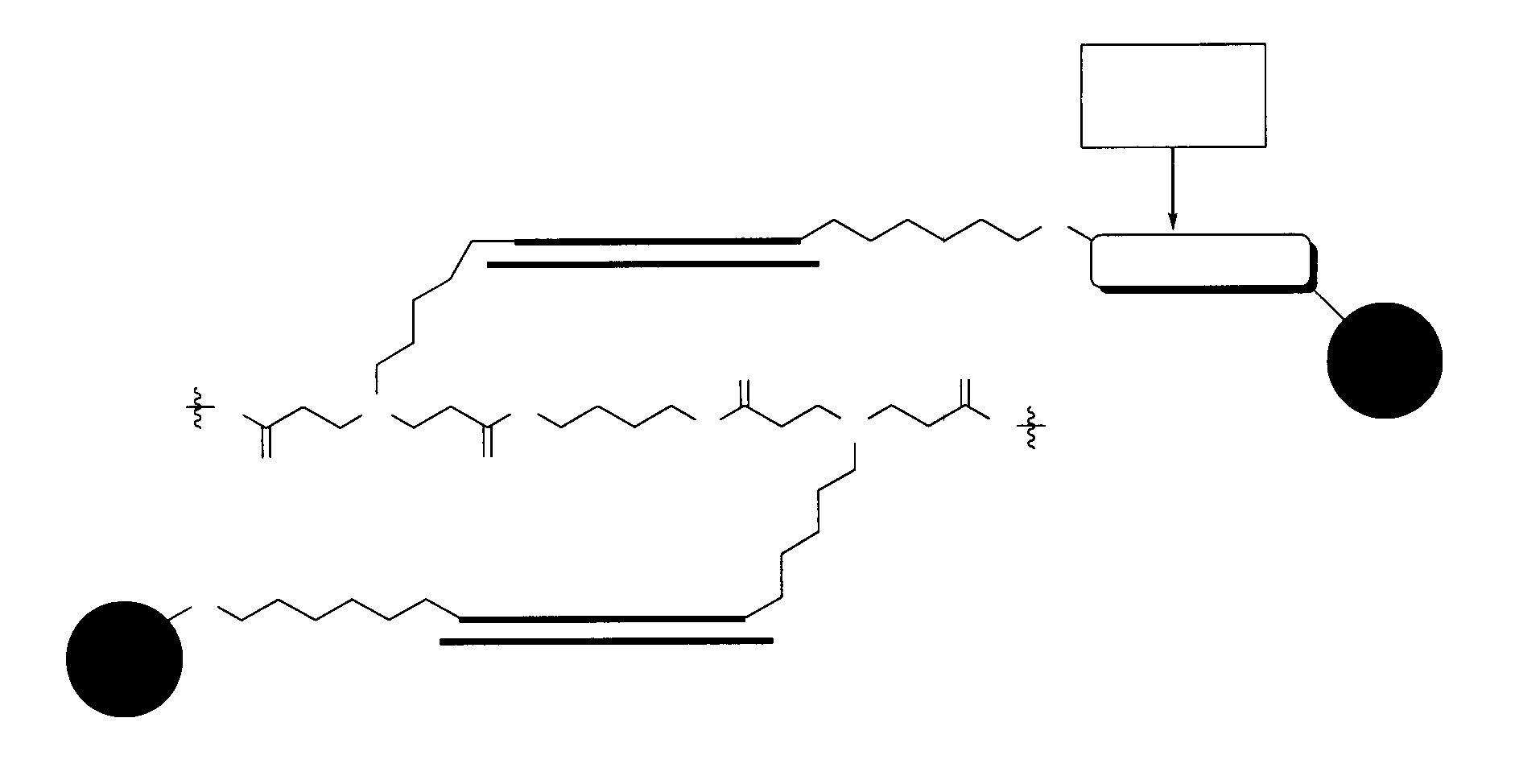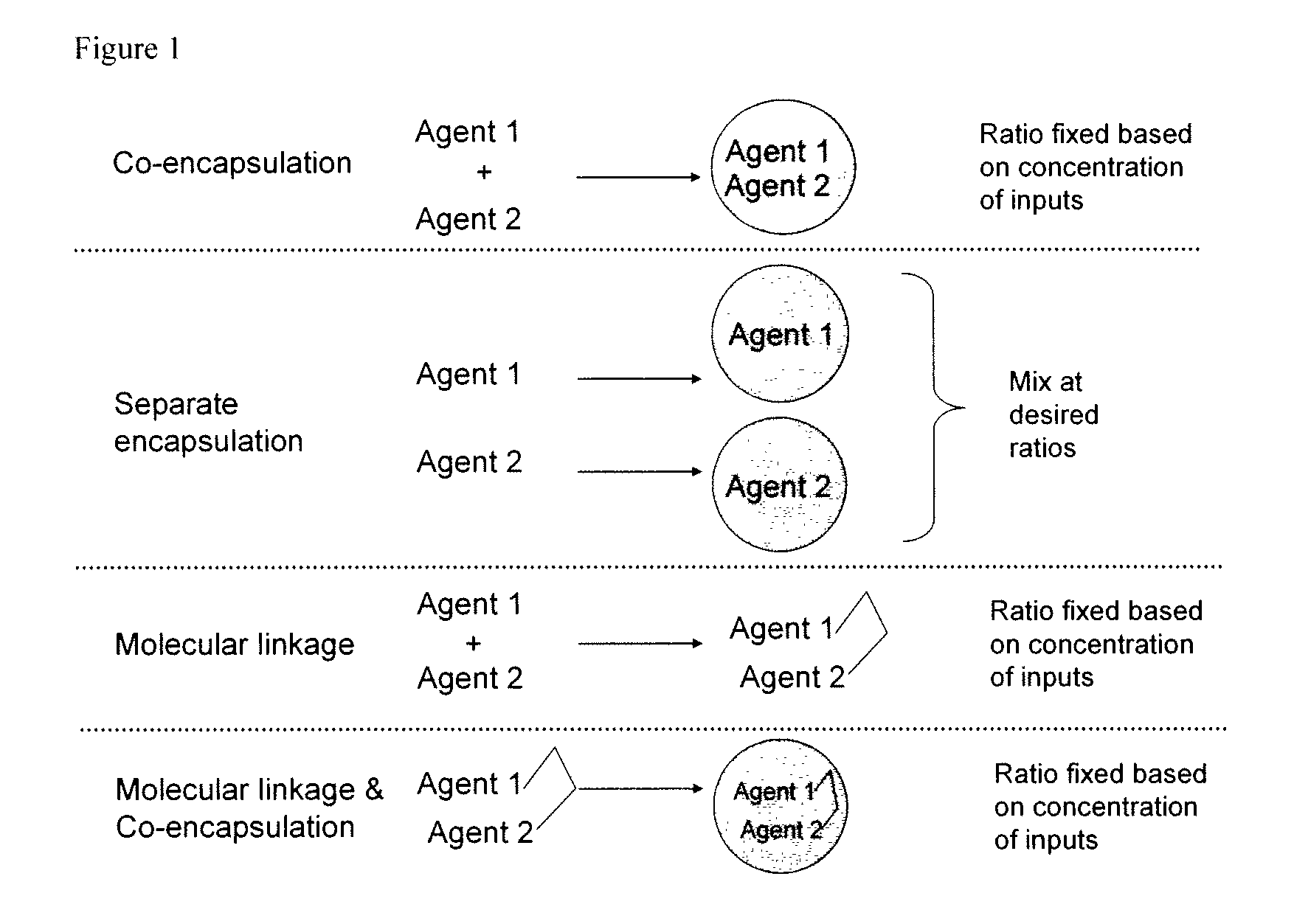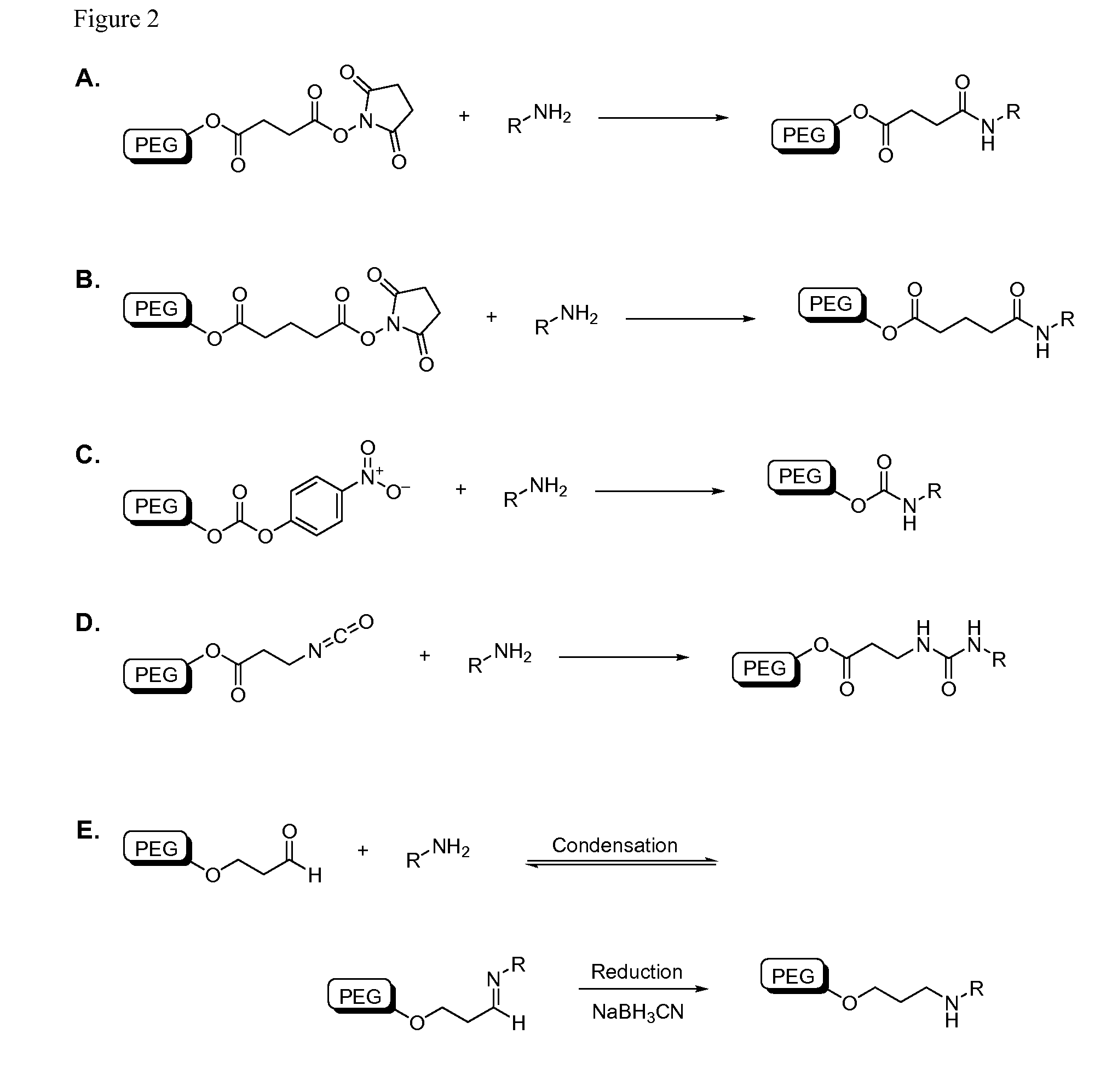METHODS AND COMPOSITIONS FOR IMPROVED THERAPEUTIC EFFECTS WITH siRNA
a technology of sirna and composition, applied in the field of compositions for improving the therapeutic effect of sirna, can solve the problems of limited success of many drugs
- Summary
- Abstract
- Description
- Claims
- Application Information
AI Technical Summary
Benefits of technology
Problems solved by technology
Method used
Image
Examples
example 1
Useful Reactive Species for Conjugation to Amines
[0459]A variety of reactive functional groups (e.g. on one or more ends of a linear or branched polymer) can be conjugated to an amine-modified siRNA. NHS esters readily react with free amines at pH 7-9 to form stable amide bonds. If desired, the NHS-ester can be joined to the polymer backbone via a carboxylic linker. Certain linkages between the polymer and functional group, for example PEG-succinimidyl succinate, are prone to hydrolytic cleavage (e.g. in the endosome). Others, such as PEG-succinimidyl glutarate, are more resistant to hydrolysis. Nitrophenyl-carbonate groups will react with free amines to form urethane linkages and isocyanate groups will react with free amines to form urea linkages. Aldehydes can be condensed with free amines to form a reversible imine linkage and subsequently reduced with an appropriate reducing agent to form secondary amines.
[0460]Examples of chemical reactions involving a terminal amine, such as a...
example 2
Useful Reactive Species for Conjugation to Sulfhydryl Groups
[0461]A variety of reactive functional groups (e.g. on one or more ends of a linear or branched polymer) can be conjugated to a thiol-modified siRNA. Maleimide groups react with high specificity with sulfhydryl groups (—SH) between pH 6.5 and 7.5 to form a stable thioether bond. Vinylsulfone is another functional group that reacts with sulfhydryl groups to form a stable thiother bond. Orthopyridyl disulfide groups react with sulfhydryl groups to form a disulfide bond, which is a reducible bond optionally subject to disruption within acidic environments, such as the endosome. An acrylate group will react with a sulfhydryl group to generate a similarly acid-labile B-thiopropionate linkage. In addition, an iodoacetimide functional group will react with a sulfhydryl group to form a stable thioether bond.
[0462]Examples of chemical reactions involving a terminal thiol, such as a thiol modified siRNA are shown in FIG. 3.
example 3
Multiple siRNA Delivery Via Polymeric Linking Agents with Functionalized Monomeric Units
[0463]Polymeric linking groups with multiple functionalities, i.e. a chemical functionality on each repeating monomeric unit, can be converted to express a usable functionality. Linking units expressing primary or secondary amine functionalities can be converted to the corresponding iodoacetamide using iodoacetyl chloride, maleimide by reaction with maleic anhydride, 4-nitrophenyl urethane using 4-nitrophenyl chloroformate, acrylamide using acryloyl chloride, or NHS ester using a bis-NHS ester linking agent such as bis(N-hydroxysuccinimidyl) succinate. Linking units expressing carboxylic acid functionalities can be coupled to a primary amine using standard peptide coupling chemistry, or transformed to the NHS ester using standard peptide coupling chemistry. Linking units expressing primary alcohol functionalities can be oxidized (with a reagent that is inert to the polymeric main chain) to the ca...
PUM
| Property | Measurement | Unit |
|---|---|---|
| Fraction | aaaaa | aaaaa |
| Fraction | aaaaa | aaaaa |
| Fraction | aaaaa | aaaaa |
Abstract
Description
Claims
Application Information
 Login to View More
Login to View More - R&D
- Intellectual Property
- Life Sciences
- Materials
- Tech Scout
- Unparalleled Data Quality
- Higher Quality Content
- 60% Fewer Hallucinations
Browse by: Latest US Patents, China's latest patents, Technical Efficacy Thesaurus, Application Domain, Technology Topic, Popular Technical Reports.
© 2025 PatSnap. All rights reserved.Legal|Privacy policy|Modern Slavery Act Transparency Statement|Sitemap|About US| Contact US: help@patsnap.com



